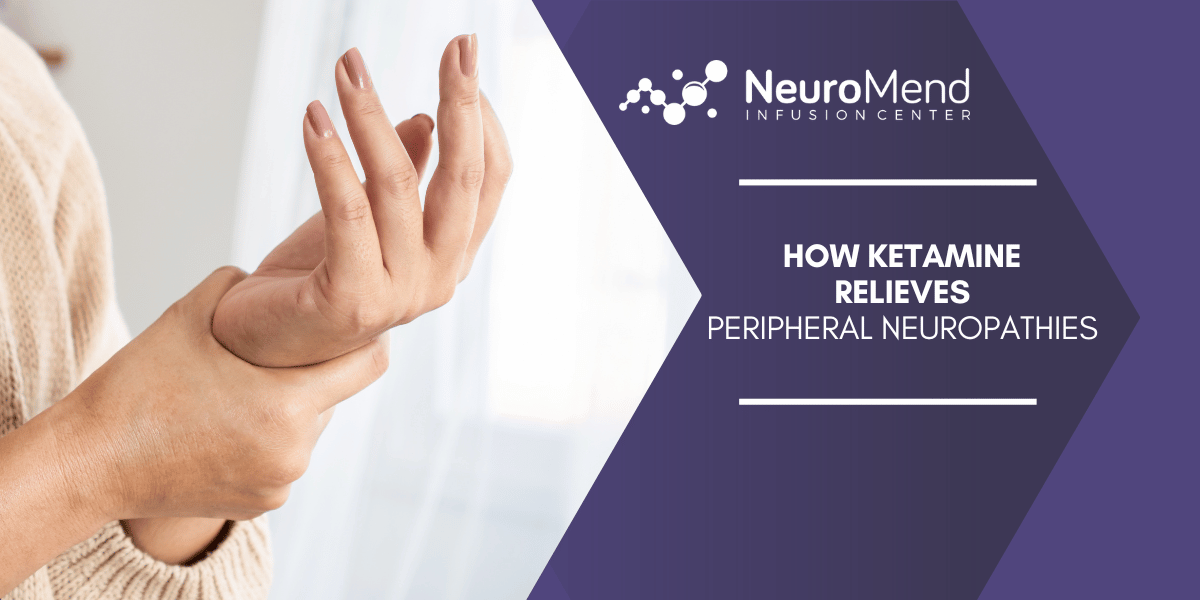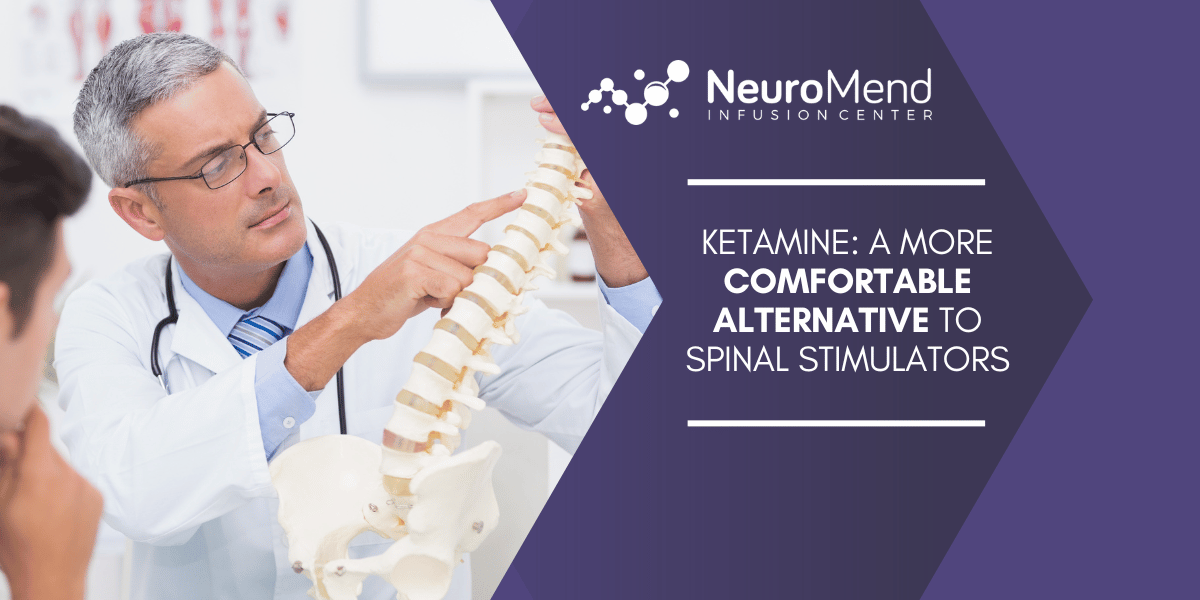
Depression stands as a formidable adversary, affecting millions of lives worldwide. Despite strides in treatment, conventional approaches often fail to provide relief for individuals grappling with treatment-resistant depression. However, amidst this challenge, a ray of hope emerges in the form of ketamine IV therapy.
In this blog, we discuss the intricacies of depression treatment, navigating the challenges faced by individuals and clinicians alike. Join us as we break down the clinical outcomes in the biomarkers of ketamine (Bio-K) study of open-label IV ketamine for refractory depression reported by ScienceDirect.
This study offers invaluable insights into the transformative potential of ketamine as a novel approach to mental health care.
Introduction
Understanding the Global Impact of Depression
Depression casts a shadow over millions of lives worldwide, contributing to increased mortality rates and significant economic burdens. Despite advancements in mental health care, conventional treatments often fall short for individuals with treatment-resistant depression. Insights from the groundbreaking Bio-K study, is shedding light on the potential of IV ketamine therapy as a transformative approach for those in need.
Background
Navigating the Challenges of Depression and Bipolar Disorder Treatment
Depression and bipolar disorder present complex challenges in treatment, characterized by limited efficacy and high rates of treatment resistance. Traditional medications may take months to yield results, leaving individuals grappling with persistent symptoms and heightened suicide risk. The landscape of mental health care calls for innovative interventions to address the unmet needs of patients worldwide.
The Promise of Ketamine Therapy
Harnessing the Therapeutic Potential of Ketamine
Emerging evidence suggests that low-dose IV ketamine holds promise as a rapid and effective treatment for individuals with treatment-resistant depression. Studies have highlighted the remarkable efficacy of ketamine, with remission rates surpassing those of conventional medications. The ability of ketamine to induce rapid symptom relief offers hope for individuals facing persistent depressive symptoms and underscores the urgent need for accessible and effective treatments.
Learn more about the different types of ketamine administrations and why IV is the most effective.
Exploring Biomarkers in the Bio-K Study
Unraveling the Predictors of Treatment Response
The Bio-K study represents a significant endeavor to identify potential biomarkers associated with treatment response in individuals with treatment-resistant depression. By examining various demographic, clinical, and treatment-related factors, researchers aim to elucidate the determinants of response to ketamine therapy. The identification of biomarkers holds the potential to personalize treatment approaches and enhance treatment outcomes for individuals grappling with depression.
Study Design and Methodology
Insights into the Bio-K Trial
The Bio-K study enrolled a cohort of 75 participants across four sites in the United States, who underwent three IV ketamine infusions over an 11-day period. Both 100-min and 40-min infusions were administered, with similar efficacy and safety outcomes. The study design incorporated stringent safety monitoring protocols, ensuring participant well-being throughout the trial. Additionally, the variation in infusion durations allowed for a comprehensive assessment of treatment efficacy and safety across different protocols.
Key Findings
Efficacy and Safety of Ketamine Therapy
Following three ketamine infusions, a significant proportion of participants achieved remission, accompanied by a notable reduction in suicidal ideation. The findings underscore the acute efficacy and safety of IV ketamine therapy for individuals with severe depression. Notably, the duration of ketamine infusion did not significantly impact treatment outcomes, indicating consistent efficacy across varying protocols.
Implications and Conclusions
The Significance of the Bio-K Study
The findings from the Bio-K study hold profound implications for the field of mental health care, providing valuable insights into the potential of IV ketamine therapy as a transformative intervention for treatment-resistant depression. Early response to ketamine therapy appears to be indicative of eventual remission, offering clinicians a potential prognostic tool for personalized treatment planning. Despite certain limitations, such as the absence of a control group, the Bio-K study contributes substantial evidence supporting the integration of ketamine therapy into real-world clinical practice.
Neuromend: Providing Effective Treatment Solutions
As leaders in ketamine IV therapy, Neuromend remains steadfast in its commitment to advancing research and delivering innovative solutions to individuals facing treatment-resistant depression. Through collaborative efforts and ongoing research endeavors, Neuromend seeks to harness the therapeutic potential of ketamine therapy to alleviate the burden of depression and enhance the quality of life for individuals worldwide.
Our advanced Ketamine protocols have transformed the lives of countless patients, helping them regain their footing and achieve optimal well-being. Contact us today to learn more about our treatment options or to schedule a free consultation.
Disclaimer: As of September 29, 2023, NeuroMend no longer offers Spravato treatments. We apologize for any inconvenience and encourage you to consult with our team or your healthcare provider for alternative options.
 Clinical outcomes in the biomarkers of ketamine (Bio-K) study of open-label IV ketamine for refractory depression, Journal of Affective Disorders, Volume 348, 2024, Pages 143-151, ISSN 0165-0327
Clinical outcomes in the biomarkers of ketamine (Bio-K) study of open-label IV ketamine for refractory depression, Journal of Affective Disorders, Volume 348, 2024, Pages 143-151, ISSN 0165-0327
(https://www.sciencedirect.com/science/article/pii/S016503272301501X)
ABOUT NEUROMEND INFUSION CENTER
![]() We are an Evidence-Based Center of Excellence and the leading provider of Ketamine Infusions, IV Infusions and Ketamine Consulting Services for Ketamine Clinics and IV Therapy Clinics.
We are an Evidence-Based Center of Excellence and the leading provider of Ketamine Infusions, IV Infusions and Ketamine Consulting Services for Ketamine Clinics and IV Therapy Clinics.
We Provide Effective Treatment For The Following Conditions: Major Depressive Disorders, Post-traumatic Stress Disorder (PTSD), Bipolar Depression, Obsessive Compulsive Disorder, Suicidal Ideations, Chronic Migraines, Severe Anxiety, Fibromyalgia and Chronic Pain Syndromes










